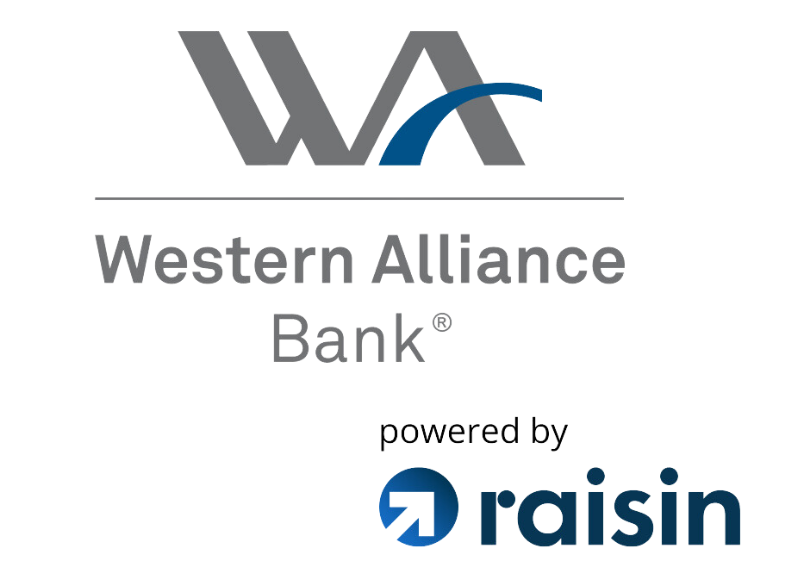Looking for the best way to stash your short-term savings? There are plenty of options available, but it can feel overwhelming.
CDs and money market accounts help you earn a higher guaranteed rate of return. Choosing which is the right one for you depends on your financial goals and when you'll need access to your savings. Each of these accounts has its pros and cons, and choosing one over the other requires careful consideration of your financial goals and needs. Let's take a look at CDs vs. money market accounts, and how each can help you realize your financial goals.
Certificates of deposit (CDs)
A certificate of deposit (CD) is a low-risk savings account that offers a fixed interest rate over a specific period. CDs are issued by banks and credit unions and are insured by the FDIC.
Interest rates on CDs are higher than those of traditional savings accounts, but the money in a CD is locked in for a specific term, which can range from 6 months to 7 years. This is why you'll often hear them being referred to as "fixed," "time," or "term" deposits.
Account holders earn a higher rate compared to savings accounts -- interest compounds differently depending on the bank, though it's usually daily. However, you may be required to make a larger minimum deposit, and you won't be able to add more funds once the initial deposit is finalized.
Some CDs allow you to withdraw money whenever you want -- though that's extremely rare, particularly among accounts with the best CD rates. In most cases, you won't be allowed to make withdrawals until the maturity date, or when your contract is up. Otherwise, you'll have to pay a penalty for early withdrawal -- the amount varies between financial institutions and according to the length of your CD term.
CDs from banks and credit unions are insured up to $250,000 per depositor, per institution by the FDIC or NCUA.
CDs are ideal for people who want to grow their savings over a fixed period without the risk of losing the principal amount. With a CD, you can earn a fixed interest rate even when the economy is in a downturn, making it an attractive option for people who have a low risk tolerance.
Compare CD Rates
| Bank & CD Offer | APY | Term | Min. Deposit | Next Steps |
|---|---|---|---|---|
|
Discover® Bank CD
Member FDIC.
Open Account for Discover® Bank CD
On Discover Bank's Secure Website. |
APY:
4.00%
|
Term:
1 Year
|
Min. Deposit:
$0
|
Open Account for Discover® Bank CD
On Discover Bank's Secure Website. |
|
APY:
4.00%
|
Term:
10 Months
|
Min. Deposit:
$2,500
|
Open Account for
On Secure Website. |
|
|
APY:
3.75%
|
Term:
6 Months
|
Min. Deposit:
$1
|
Open Account for
On Secure Website. |
Money market accounts
A money market account (MMA) is a type of interest-earning savings account that combines the features of savings accounts and checking accounts.
Money market accounts are offered by most banks and credit unions, and they are insured by the FDIC (Federal Deposit Insurance Corporation) or NCUA (National Credit Union Administration), so you're covered for up to $250,000 per depositor, per institution.
They offer higher interest rates than traditional savings accounts and come with a debit card, allowing you to access your funds when you need them.
While these accounts are similar across most financial institutions, the best money market accounts tend to offer higher rates compared to traditional deposit accounts. That allows you to maximize how much your money earns. Sometimes money market accounts offer check-writing and access to a debit or ATM card.
Money market accounts do have some limitations. You may only be able to make up to six withdrawals per month, as mandated by the Federal Reserve's Regulation D. However, ATM and in-person withdrawals don't count toward the limit.
CDs vs. money market accounts: How are they similar?
When it comes to choosing an account for your savings, it ultimately depends on your financial goals and needs.
Here are some factors to consider when choosing between CDs and money market accounts.
Interest rates
Both money market accounts and CDs offer the opportunity to earn a higher rate of interest than regular savings accounts, though CDs typically offer higher interest rates the longer you keep your cash in the account.
Initial deposit amounts
CDs tend to require higher initial deposit amounts, often in the four- to five-figure range. Money market accounts offer a variable interest rate that is higher than traditional savings accounts, but typically lower than CDs.
Liquidity
While both of these account types are great for earning interest in the short term, understanding how and when you'll use your cash will come in handy. That's because CDs tie up your money for a predetermined period of time, sometimes years.
Paying a penalty for withdrawal before the time is up can wipe out the interest you've accumulated. Though money market accounts offer a lower rate, you can withdraw money at any time (though some types are limited to six withdrawals per month). Plus, you get easier access, via checking-writing and a debit or ATM card.
Risk
CDs are low-risk investments, making them ideal for people who have a low tolerance for risk. Money market accounts have a higher risk than CDs since they invest in short-term debt securities. However, the risk is still low compared to other investment options.
Think of a money market account as a hybrid checking and savings account, offering you the potential of higher rates with easy access to your cash. Keep in mind that if your balance falls below a certain amount, your bank may charge you a monthly fee. CDs, on the other hand, don't have monthly fees.
Compare MMAs and CDs side-by-side
| Feature | Money Market Account | CDs |
|---|---|---|
| Large initial deposit | Yes | Yes |
| Withdraw funds anytime | Yes | No |
| High interest rates | Yes | Yes |
| ATM access | Yes | No |
| Check-writing privileges | Yes | No |
Which is right for you?
If your goal is to earn as much interest as possible and you don't mind parking your cash for a while, then a CD is a great choice.
If you want the flexibility to use your cash regularly but still maximize your savings, then a money market account could be just right.
We've scanned the most popular banks to find CDs with high interest rates to make your money work harder for you. Get started by clicking below.
FAQs
-
Yes, money market accounts are FDIC insured at banks and NCUA insured at credit unions.
-
Choosing between CDs and money market accounts depends on your financial goals and needs. If you have a low risk tolerance and want a fixed interest rate, then a CD may be the better option. On the other hand, if you want to earn a higher interest rate and have easy access to your funds, then a money market account may be the better option.
-
One of the main drawbacks of a money market account is the low interest rate they usually offer, which can sometimes be lower than the rate of inflation. Additionally, many money market accounts come with fees or restrictions on withdrawals, making them less convenient for those who need more immediate access to their funds.
We're firm believers in the Golden Rule, which is why editorial opinions are ours alone and have not been previously reviewed, approved, or endorsed by included advertisers. Motley Fool Money does not cover all offers on the market. Motley Fool Money is 100% owned and operated by The Motley Fool. Our knowledgeable team of personal finance editors and analysts are employed by The Motley Fool and held to the same set of publishing standards and editorial integrity while maintaining professional separation from the analysts and editors on other Motley Fool brands. Terms may apply to offers listed on this page. APYs are subject to change at any time without notice.


